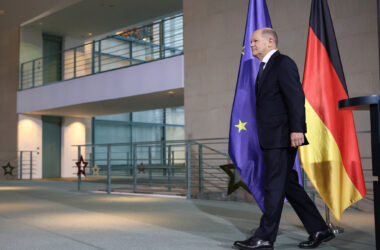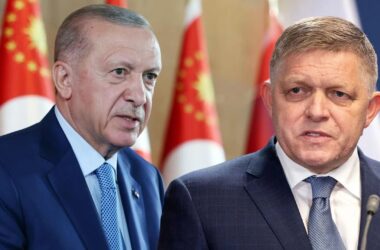Italian Premier Giorgia Meloni called for a “pragmatic” approach to prevent an escalating trade conflict between the European Union and the United States while expressing support for U.S. President Donald Trump’s proposed ceasefire in Ukraine.
Addressing the Italian Senate ahead of an EU leaders’ summit, Meloni shared her stance on Trump’s policies, which have unsettled Europe since his return to office two months ago. She emphasized the need to avoid a full-scale trade war, particularly in response to U.S. tariffs on steel, which have prompted the EU to impose countermeasures on American whiskey and spirits. Italian winemakers, who exported €2 billion worth of goods to the U.S. last year, are among those facing potential tariffs of up to 200% if EU measures take effect on April 1.
“I am convinced that we need to work concretely and with pragmatism to find common ground and avoid a trade war that would not benefit anyone, not the United States, and not Europe,’’ Meloni said, warning against retaliatory tariffs that could create a damaging cycle.
On Ukraine, Meloni welcomed Trump’s push for a 30-day ceasefire as a potential step toward ending the war. “We support the efforts of U.S. President Donald Trump in this sense,’’ she stated, calling the proposed deal “a first significant step in a path that must lead to a just and lasting peace for Ukraine.”
She also firmly rejected the idea of sending Italian troops to Ukraine, distancing herself from a British-French proposal for a European security force in the region. “We believe that the dispatch of European troops proposed in a draft by Britain and France is a very complex, risky and ineffective option,’’ she said.
Meloni reiterated Italy’s commitment to its controversial plan to process asylum-seekers in centers located in Albania. The project, facing legal hurdles from Italian courts, is currently under review by the EU Court of Justice. She warned that blocking the initiative could undermine Europe’s overall migration policies.
“I hope that the court will avoid the risk of compromising the repatriation policies not only of Italy, but all EU member states,’’ she said, cautioning that a negative ruling could “undermine the very stability of Europe.”




